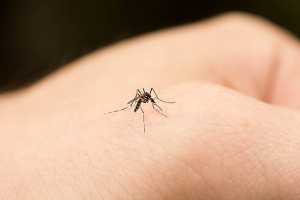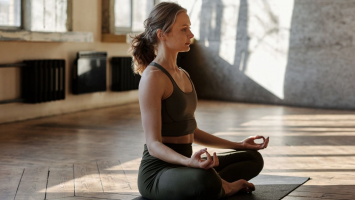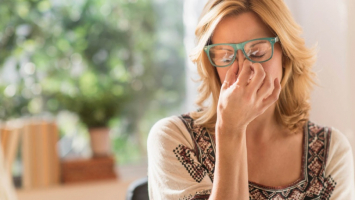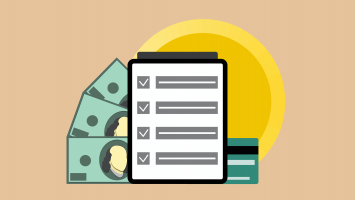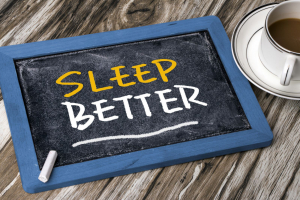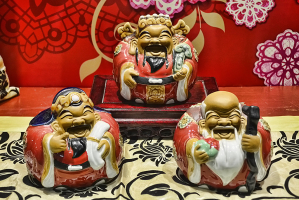Top 10 Home Remedies for Insomnia
Short-term insomnia impacts a large number of people. It might be difficult to fall asleep and stay asleep until it's time to get up if you have this common ... read more...sleep condition. Home remedies may be able to help if your sleeping patterns are affecting your quality of life. Below are some of the Home Remedies for Insomnia!
-
The practice of mindfulness meditation involves sitting quietly and breathing slowly and steadily. You observe your breath, body, thoughts, feelings, and sensations as they arise and pass.
Mindfulness meditation provides a number of health benefits that go hand-in-hand with a healthy lifestyle that encourages good sleep. It can help with stress relief, focus, and immunity. Meditation significantly improved insomnia and overall sleep patterns, according to researchers in a 2011 study. Over the course of a few months, participants attended a weekly meditation session, a daylong retreat, and practiced at home. You can meditate as frequently as you choose. If you don't have time for a longer practice, schedule 15 minutes in the morning or evening. To keep motivated, consider joining a meditation group once a week. Or you might also try a guided meditation on the internet.
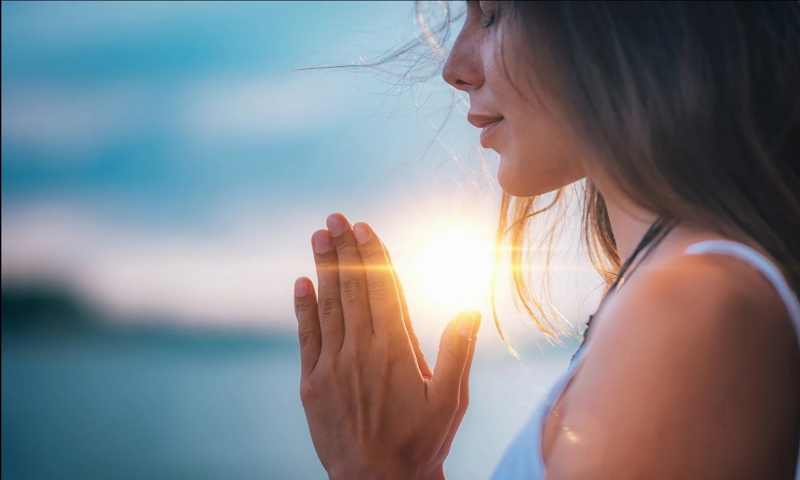
Mindfulness meditation 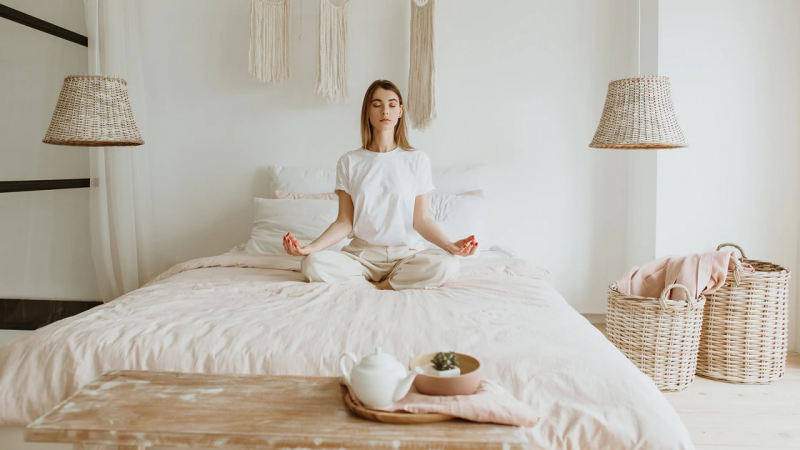
Mindfulness meditation -
Repeating a mantra or a positive affirmation many times might help you focus and calm down. Mantras are believed to calm the mind and produce feelings of relaxation.
In a 2015 study, researchers taught homeless women to silently repeat a mantra throughout the day and before sleeping. Over the course of a week, those who continued to repeat the phrase experienced less insomnia. You can use a mantra that is written in Sanskrit, English, or another language. Look for inspiration on the internet or come up with your own. Choose a mantra that is peaceful and calming for you. It should be a positive statement in the present tense. A good mantra will help you to focus on the sound repetition over and over again, allowing you to relax and sleep. Mentally or aloud, repeat the mantra, focusing on the words.

Mantra repetition 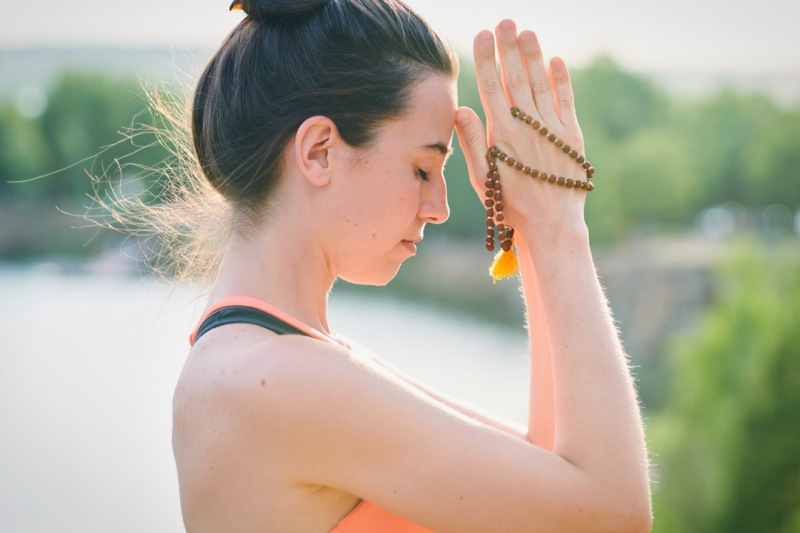
Mantra repetition -
Yoga has been found to have a beneficial effect on sleep quality. Yoga has been shown to reduce stress, improve physical function, and increase mental focus. Even a few minutes of yoga practice every day might help you become more aware of your body. This can help you discover where you're tense and where you're out of balance. You may use this awareness to re-establish balance and alignment in your life.
Choose a style that emphasizes moving meditation or breath work rather than strenuous physical movements. You can stay present and focused by moving carefully and slowly. Yin and restorative yoga are both excellent choices. Each week, try to do a couple of longer sessions and at least 20 minutes of self-practice. Before going to bed, do the postures to help you rest and unwind. Don't push yourself into a pose if it doesn't feel right. It is possible that forcing it will result in harm. It's crucial to do what feels comfortable for you and your body.

Yoga 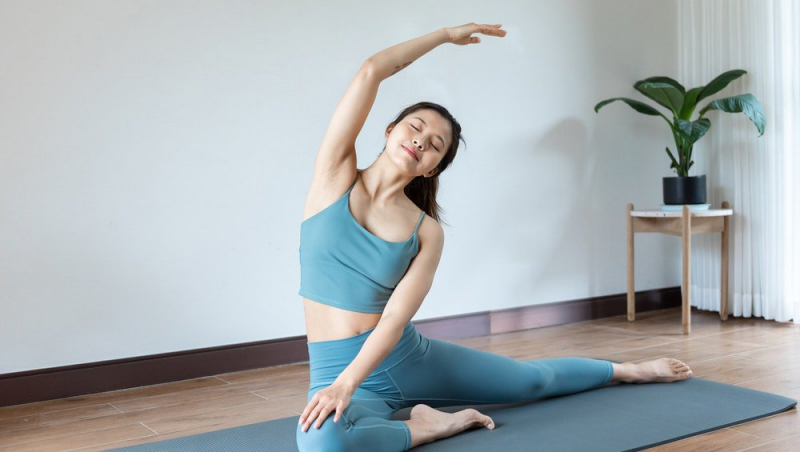
Yoga -
Exercise is beneficial to one's overall health. It can improve your mood, give you more energy, help you lose weight, and help you sleep better.
In a 2015 research, participants exercised for at least 150 minutes each week for six months. The participants had significantly fewer symptoms of insomnia throughout this time, according to the study. They also demonstrated lower depression and anxiety symptoms. Moderate exercise for at least 20 minutes each day is required to gain these benefits. A couple of times per week, include some weight training or intense cardiovascular activity. Take into account your physical condition and exercise accordingly. Physical injury is a risk, but it can avoidable if you practice carefully.
Exercise 
Exercise -
Massage therapy, according to researchers in a 2015 study, can help people with insomnia by improving sleep quality and reducing daytime dysfunction. It might also help with pain, anxiety, and depression.
Self-massage is an option if a professional massage is not available. You could also benefit from having a massage from a partner or friend. Allow your thoughts to wander and focus on the feelings and sensations of touch. Look up tips and techniques on the internet. While massage is generally safe if you have any specific health concerns that may prevent you from getting the benefits, consult your doctor. If you have sensitive skin, try a cream or oil on a small area of skin before using it.
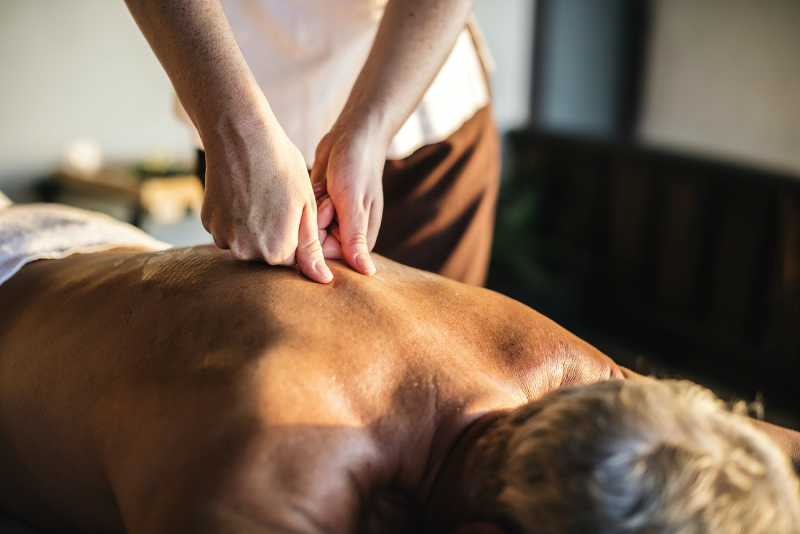
Massage 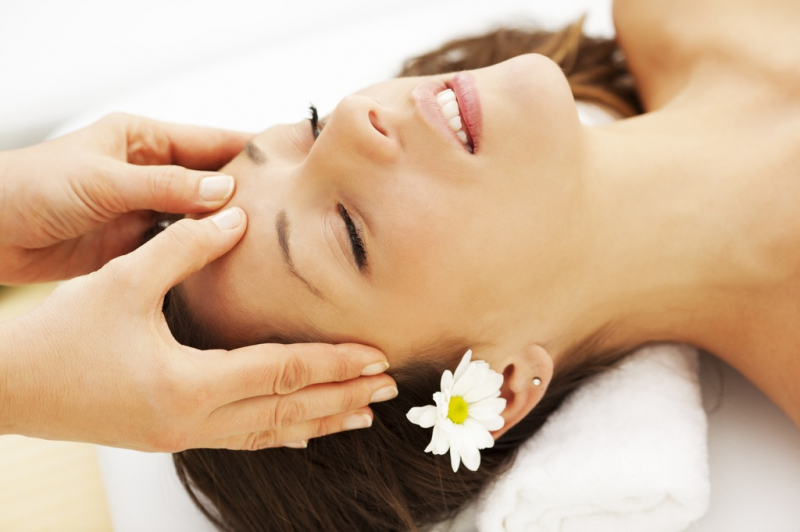
Massage -
Magnesium is a mineral that is found in nature. It can help in muscle relaxation and reduce stress. This is thought to promote sleep habits.
In a 2012 trial, participants were given 500 milligrams (mg) of magnesium twice a day for two months. Researchers discovered that participants had fewer symptoms of insomnia and had better sleep patterns throughout this period. Men can take up to 400 mg per day, but women can only take up to 300 mg. You have the option of dividing your doses between morning and evening or taking your dose just before bed. You may also add 1 cup of magnesium flakes to your nighttime bath and absorb the magnesium through your skin. Stomach and intestinal problems are among the side effects. To see how your body reacts, you might start with a lower dose and gradually increase it. Magnesium supplements should not be taken on a regular basis. Every two weeks take a break for a few days. Don't take more than the product's suggested dosage.

Magnesium 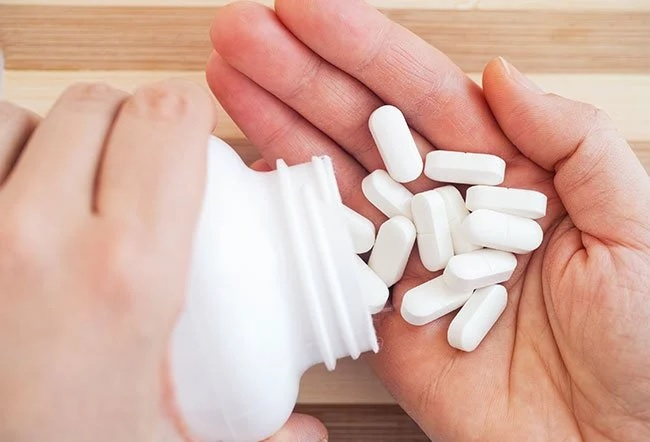
Magnesium -
Lavender's medicinal properties have been known for centuries. Lavender is thought to relieve anxiety and increase relaxation. Many people believe it is helpful for anxiety and depression therapy. Lavender can raise one's mood, relieve pain, and promote good sleep. It is believed that taking it orally is more beneficial.
When taken alongside an antidepressant, lavender oil capsules improved sleep patterns in people with depression, according to the results of a 2014 research. People also had decreased anxiety levels, which would tend to allow for better sleep. Each day, take 20 to 80 mg of lavender or use as directed. The lavender essential oil can be used in a diffuser or sprayed on your pillow. Tea made with lavender is also an option. Inhaling lavender has been demonstrated to improve sleep latency (the time it takes to fall asleep) and sleep duration.
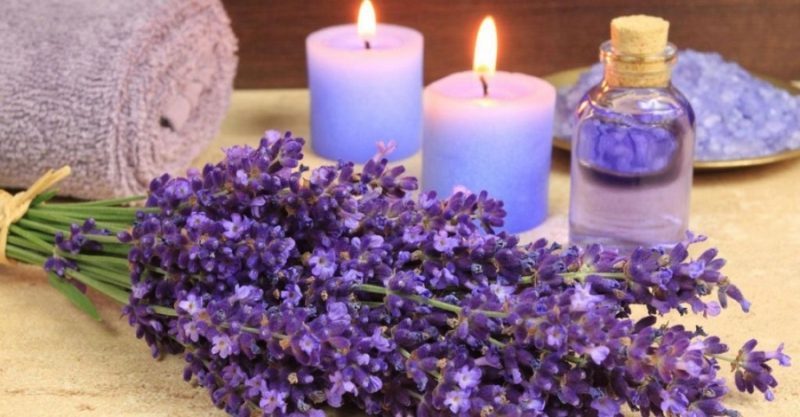
Lavender oil 
Lavender oil -
Melatonin can help you in falling asleep faster and improve the quality of your sleep. “Your body produces melatonin naturally. It doesn’t make you sleep, but as melatonin levels rise in the evening it puts you into a state of quiet wakefulness that helps promote sleep”, Johns Hopkins sleep expert Luis F. Buenaver, Ph.D., C.B.S.M.
Melatonin was found to significantly improve sleep patterns in people with cancer and insomnia in a 2016 research. Between seven and fourteen days, sleep quality increased even more. 30 minutes to two hours before bedtime, take 1 to 5 mg. Because greater dosages may have negative effects, you should use the lowest effective dose feasible. It has the ability to cause: depression, dizziness, headaches, irritability, stomach cramps or wakefulness at the night.
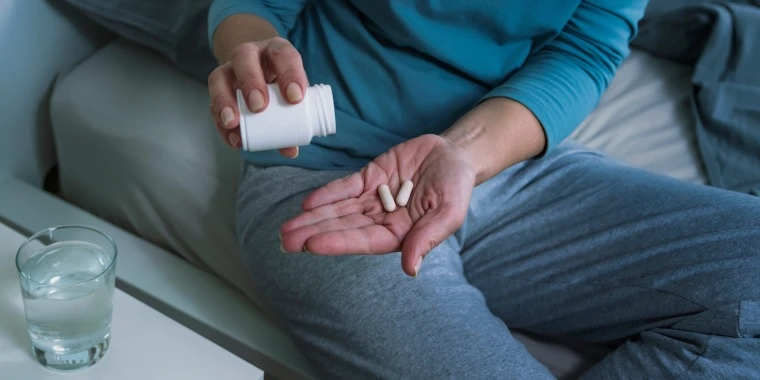
Melatonin 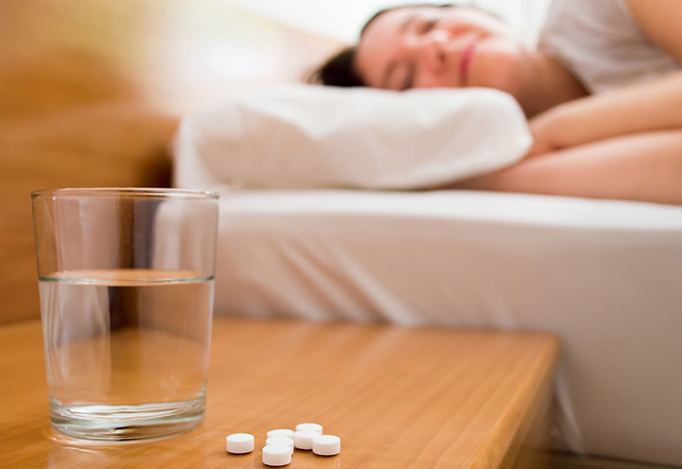
Melatonin -
Chamomile is a plant whose sedative properties make it popular for promoting sleep. Chamomile includes apigenin, an antioxidant that promotes muscular relaxation and sleep. Chamomile was proven to improve sleep quality safely in a review of 12 research. Another research looked at how chamomile tea affected 80 women who had recently given birth and were having trouble sleeping. When compared to a control group, they reported less sleep-difficulty-related symptoms after two weeks.
Chamomile can be drunk as tea, used as an essential oil, or taken as a dietary supplement. Chamomile extract can considerably enhance sleep quality in older people with insomnia, according to a 2017 research. Doctors recommend drinking a cup of chamomile tea 45 minutes before bed to induce sleepiness and fall asleep quickly.

Chamomile 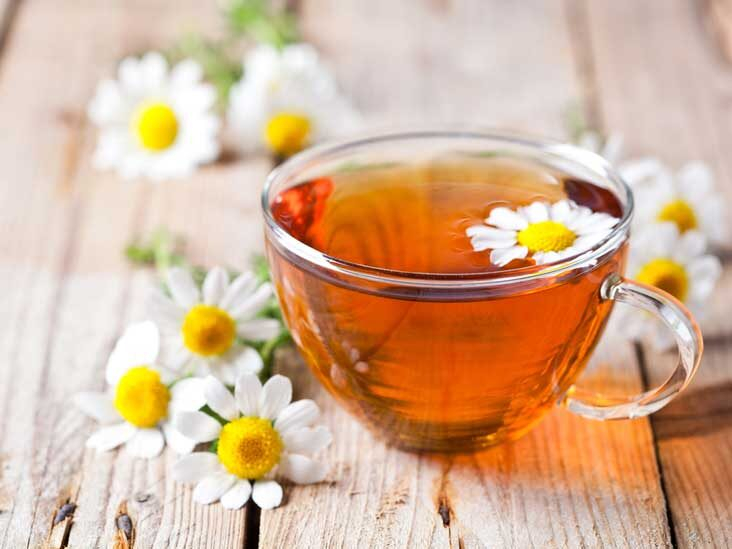
Chamomile -
In the most basic form, sleep hygiene refers to a person's bedtime habits and activities. Good sleep hygiene can help a person sleep more consistently and uninterruptedly.
People can have a good night's sleep by doing the following:
- Maintaining a regular nighttime routine, which involves going to bed and waking up at the same time every day, including on weekends
- At least an hour before night, avoid screens, laptops, mobile phones, and televisions.
- Use dimmed lights, thick curtains, blinds, earplugs, and eye masks to keep the bedroom dark and silent.
- Ensuring that the beds, pillows, and blankets are as comfortable as possible.
- Avoiding alcohol, nicotine, and caffeinated beverages in the evening
- 1.5 hours before bedtime, take a warm bath or shower.
- ...

Good sleep hygiene 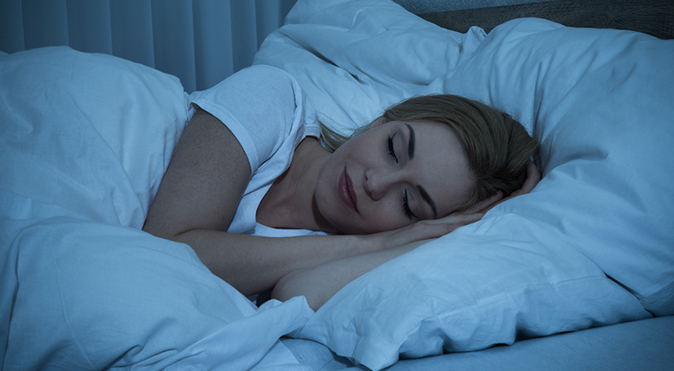
Good sleep hygiene












